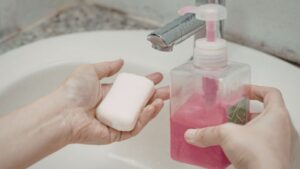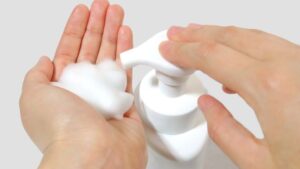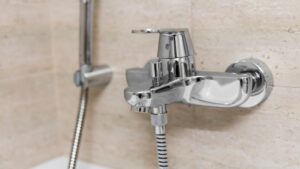Many people are unaware that the water flowing from their showerhead can be laden with chlorine, heavy metals, and other impurities that strip natural oils, cause irritation, and lead to dull, lifeless hair. The solution might be simpler than you think.
This guide will explore the proven benefits of using a shower head filter, backed by science. We’ll cut through the marketing hype of “20-stage” systems and show you what truly matters for cleaner, healthier water. By the end, you’ll understand the remarkable advantages of filtered shower water and how to choose the perfect filter for your home.
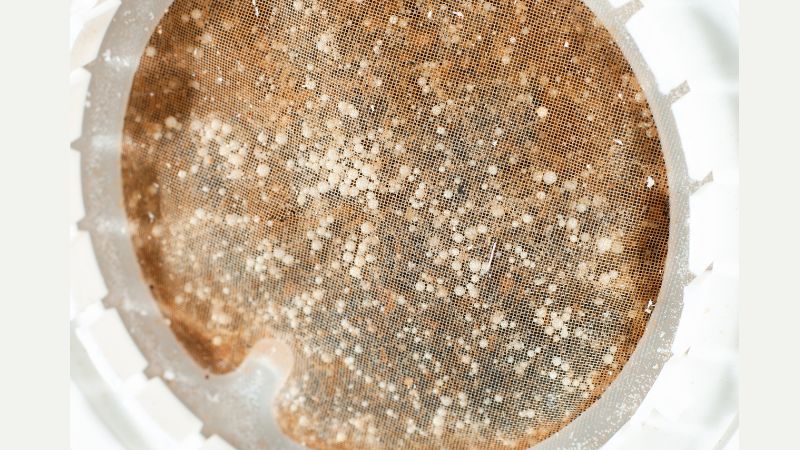
What is a Shower Head Filter?
A shower head filter is a device that attaches to your shower arm or is built into the showerhead itself. Its purpose is to purify your water right before it reaches your body, targeting several key contaminants:
- Chlorine and Chloramines: Disinfectants used in municipal water treatment that can cause dryness, irritation, and a strong chemical smell.
- Heavy Metals: Such as lead, mercury, and iron that can be present in water.
- Volatile Organic Compounds (VOCs): Chemicals that can vaporize in a hot shower and be inhaled.
- Sediment: Small particles of rust and dirt from pipes that can clog pores.
Top 5 Benefits of Using a Shower Head Filter
While some claims are exaggerated, the core benefits of a quality shower filter can make a significant difference in your daily life.
- Softer, More Hydrated Skin: Chlorine strips the natural oils that protect your skin. By removing it, a shower filter helps your skin stay moisturized and soft, which can be especially beneficial for those with sensitive skin, eczema, or psoriasis.
- Healthier, More Vibrant Hair: Just like with your skin, chlorine is harsh on your hair. It can cause it to become dry, brittle, and frizzy. Filtering your water can lead to smoother, shinier hair and even protect your color-treated hair from fading.
- Reduced Chlorine Inhalation: In a hot shower, chlorine turns into a vapor that you can inhale. For those with asthma or other respiratory sensitivities, reducing chlorine in the air can make showering a more comfortable experience.
- Less Skin Irritation and Rashes: By filtering out known allergens like chlorine and other impurities, shower filters can help reduce skin irritation, rashes, and other allergic reactions.
- A Cleaner Shower: The minerals in hard water react with soap to create soap scum. While a shower filter doesn’t soften water, by removing chlorine and other impurities, it can help reduce the buildup of soap scum, meaning less time spent scrubbing your shower walls and glass doors.
10 Common Filter Materials and What They Do
The heart of any shower filter is its filter media. Forget the number of “stages” and focus on the quality of the materials used.
1. Activated Carbon
- Claims: Adsorbed impurities.
- How It Works: Activated carbon uses adsorption, a process where contaminants bind to the carbon’s surface. Its porous structure maximizes surface area for trapping impurities.
- What It Is: Made from compressed activated carbon derived from coconut shells, coal, or wood.
- Our View: Carbon is highly effective for chlorine and some VOCs but struggles with minerals like calcium and magnesium.
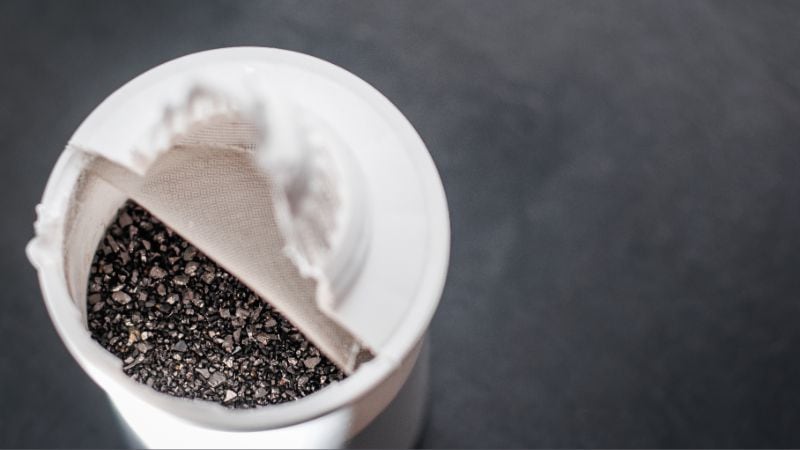
2. KDF
- Claims: Effectively removes chlorine, iron, lead&. other heavy metals while prolongingthe flter life from bacteria, algae.
- How It Works: KDF uses a redox reaction to convert contaminants into harmless compounds. For instance, chlorine is transformed into chloride ions.
- What It Is: A granular alloy of copper and zinc.
- Our View: Works well for chlorine and metals but has limited impact on hardness minerals. Effective at high water temperatures.
3. Vitamin C Ball
- Claims: Infuses the water with Vitamin Cand other beneficial elements.
- How It Works: Vitamin C reacts with chlorine and chloramines, breaking them down into less harmful substances.
- What It Is: Derived from ascorbic acid, a naturally occurring compound found in citrus fruits.
- Our View: Excellent for chlorine removal but ineffective for hard water minerals or heavy metals.
4. Calcium Sulphite Ball
- Claims: Extremely effective at reducing chlorine both hot and cold water.
- How It Works: Calcium sulphite reacts with chlorine, converting it to harmless salts.
- What It Is: A chemical compound produced synthetically for industrial and filtration purposes.
- Our View: Very effective for chlorine removal but does not address hardness or heavy metals.
5. Antibacterial Ball
- Claims: Inhibit the growth of microorganisms and bacteria in water.
- How It Works: The effective antibacterial components destroy the cell walls of bacteria, preventing them from surviving. Staphylococcus aureus, as a representative strain, is applicable to other bacterial species as well.
- What It Is: It is composed of nano-inorganic antibacterial materials and porous mineral materials through a special process of compounding.
- Our View: A variety of antimicrobial components can be selected. Antibacterialeffect can reach 90%+.
6. Anti-scale Strip
- Claims: Prevent scale formation and divergence.
- How It Works: The active ingredients of the Anti-scale Strip participate in the formation of water scale nuclei at the very beginning of the process, interfering with the formation of water scale nuclei and preventing the formation of water scale crystals at their source.
- What It Is: A controlled, slow-release, anti-scaling granule produced using micron granulation technology and a multi-layer molding method.
- Our View: Used in the shower head. The dosage should be 20-25 grams. It can significantly improve water efficiency and the lifespan of the device is 20-40 tons.
7. Zeolite
- Claims: Removes heavy metals, ammonia, and some organic compounds.
- How It Works: Zeolite is a microporous mineral that traps contaminants through ion exchange and physical adsorption.
- What It Is: A naturally occurring or synthetically produced aluminosilicate mineral.
- Our View: Effective for specific heavy metals and ammonia but has limited application for chlorine or hardness.
8. Tourmaline
- Claims: Softens water, improves pH balance, and produces negative ions for healthier skin.
- How It Works: Tourmaline generates weak electrical charges that claim to alter water’s molecular structure.
- What It Is: A crystalline boron silicate mineral found in granite and other rocks.
- Our View: Limited scientific evidence supports water softening or ionization effects; most benefits are anecdotal.
9. Maifan Stone
- Claims: Adds beneficial minerals, balances pH, and removes some impurities.
- How It Works: Maifan stone slowly releases trace minerals while adsorbing certain contaminants.
- What It Is: A mineral-rich stone commonly found in Chinese mountain regions.
- Our View: Maybe it can slightly improve water mineral content but is not a primary filtration method for chlorine or metals. We think it’s unlikely to make any noticeable difference.
10. FIR Ceramic Balls
- Claims: Improves water quality by releasing far-infrared radiation, softens water, and enhances mineralization.
- How It Works: Manufacturers claim that FIR ceramic balls emit low-level infrared energy that is claimed to reduce water cluster size and improve absorption.
- What It Is: Small ceramic spheres made from a blend of mineral-rich clays and other natural compounds.
- Our View: The scientific evidence for FIR effects on water structure is limited. While they may add trace minerals, their effectiveness as a standalone filter material is doubtful.
The Hard Truth About Hard Water
It is a common misconception that shower filters can fix hard water. Hard water is caused by high levels of dissolved minerals like calcium and magnesium, which a shower filter cannot remove. The only way to truly soften water is with a whole-house ion exchange system. While a filter will improve the feel of your water by removing chlorine, it will not solve the problems associated with hard water, like limescale buildup.

How to Choose the Right Shower Head Filter: A 5-Step Guide
Navigating the market can be tricky. Follow these steps to find a filter that works for you.
- Identify Your Main Concern: Is your primary goal to eliminate chlorine odor, protect color-treated hair, or soothe sensitive skin? Your goal will determine the best filter media to look for.
- Check the Filter Media: Look for filters that explicitly state they use KDF, calcium sulfite, or Vitamin C for effective chlorine removal, especially in hot water.
- Consider Flow Rate: A poorly designed filter can significantly reduce your water pressure. Check reviews and product specifications for the filter’s flow rate (measured in gallons per minute) to ensure it’s compatible with your home’s pressure.
- Evaluate Cartridge Lifespan and Cost: Every filter needs its cartridge replaced. Check how long a cartridge lasts (typically 6 months or 10,000 gallons) and the cost of replacements to understand the long-term expense.
- Look for Third-Party Certification: The most reliable filters are certified by organizations like the NSF (National Sanitation Foundation). An NSF certification (specifically NSF/ANSI 177 for shower filters) verifies that the product’s claims about chlorine reduction are true.
Conclusion: Is a Shower Head Filter a Worthwhile Investment?
For anyone looking to reduce their exposure to chlorine and improve the health of their hair and skin, a high-quality shower head filter is an excellent investment. The benefits, from softer skin and hair to a more pleasant shower experience, are tangible.
However, it’s crucial to have realistic expectations and understand that a shower filter will not soften hard water. By focusing on proven filter materials and choosing a reputable, certified brand, you can make a smart choice for your well-being.
Ready to upgrade your shower experience? Explore the range of Leelongs shower filter cartridges today to find the perfect match for your system. For a complete solution, Leelongs also offers a variety of high-quality filtered shower heads and filter accessories.

